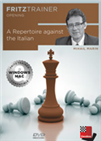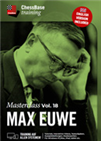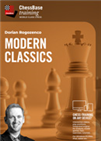Abdusattorov amid four-player chasing pack
Following a series of eventful rounds, the seventh day of action at the Superbet Chess Classic in Bucharest was comparatively quieter, with only one game ending decisively and three fairly uneventful draws – plus a more tense technical battle that also finished in a draw.
The lone winner of the day was Nodirbek Abdusattorov, who scored his first victory of the event and his only win in two editions of the tournament. Last year, the Uzbek GM collected eight draws and one loss to finish with 4/9. This time, he defeated Jan-Krzysztof Duda to join a four-player chasing pack standing a half point behind a quartet of co-leaders.
Despite the frequent fighting spirit on display in Bucharest, no player has managed to surpass a plus-two score. With two rounds remaining, eight out of ten participants retain realistic chances of taking the title. Leading the pack with 4/7 are Fabiano Caruana, Praggnanandhaa Rameshbabu, Alireza Firouzja, and Maxime Vachier-Lagrave, while Abdusattorov, Wesley So, Levon Aronian and Bogdan-Daniel Deac are just half a point behind. Bringing up the rear are Duda and world champion Gukesh Dommaraju, both with 2½/7 and effectively out of contention for overall victory.
Round 7 results
 The repertoire against the Giuoco Pianissimo examined on this video course, provides Black with methods of evading this slightly one-sided pattern, yielding sound play in double-edged positions.
The repertoire against the Giuoco Pianissimo examined on this video course, provides Black with methods of evading this slightly one-sided pattern, yielding sound play in double-edged positions.
Co-leader Maxime Vachier-Lagrave taking a stroll during round seven | Photo: Lennart Ootes
Abdusattorov's triumph against Duda came out of a Colle System, a somewhat rare choice at the elite level. The Uzbek grandmaster opted for a quieter, positional battle rather than engaging in sharp tactical play. A couple of inaccuracies by Duda, including a notable positional error with 16...Na6, left Black in a vulnerable situation. Abdusattorov capitalised on his positional edge, displaying exceptional grasp of the strategic subtleties, and began to regroup his pieces for a kingside attack.
The conversion phase was marked by patience and precision, as Abdusattorov pressed forward with a methodical offensive, eventually forcing Duda's resignation after 49 moves (see analysis of the game below).

Jan-Krzysztof Duda | Photo: Lennart Ootes
Among the remaining draws, Pragg came closest to scoring a win. Facing fellow co-leader Firouzja, the Indian GM emerged from a Symmetrical English Opening with a positional edge, having secured the pair of bishops in a relatively open position with queens and rooks still on the board. However, the imprecise 23.Bc1 allowed Firouzja to equalise
There followed 23...Qxe2 24.Qxe2 Rxe2 25.Ra5 Nc3 26.Bxb7 Rb8 27.Bf3 Ra2 28.Rc5 Ne2+, forcing White to relinquish one of his bishops.
 Experts examine the games of Max Euwe. Let them show you which openings Euwe chose to play, where his strength in middlegames were, which tactical abilities he had or how he outplayed his opponents in the endgame.
Experts examine the games of Max Euwe. Let them show you which openings Euwe chose to play, where his strength in middlegames were, which tactical abilities he had or how he outplayed his opponents in the endgame.
Max Euwe became the fifth World Chess Champion after beating Alexander Alekhine in the 1935 World Championship match. A maths teacher by profession, Euwe remained an amateur throughout his life, but was still the best chess player in the Netherlands, and one of the world's best players. Euwe holds the record for the most Dutch national championships, with twelve. After winning the World Championship, Euwe was also the world's best player for a while. He lost the title again in 1937 in the rematch against Alexander Alekhine.
Free video sample: Openings
A more accurate continuation with 23.Rab1 would have preserved White's bishop pair, potentially allowing Pragg to keep his strategic edge.
The penultimate round, scheduled for Thursday, features another high-stakes encounter among co-leaders, as Caruana will have the white pieces against Vachier-Lagrave. Meanwhile, Pragg is set to play black against So, while Firouzja will take on Abdusattorov with white.

Praggnanandhaa Rameshbabu facing Alireza Firouzja | Photo: Lennart Ootes
Abdusattorov 1-0 Duda
 Top trainers strongly recommend regular study of well-explained classical games to improve your understanding of chess in the long term. 33 modern classics are explained in details on this video course.
Top trainers strongly recommend regular study of well-explained classical games to improve your understanding of chess in the long term. 33 modern classics are explained in details on this video course.
A gleeful Nodirbek Abdusattorov being interviewed by Cristian Chirila after his fine victory | Photo: Lennart Ootes
Current standings
All games
Links
























